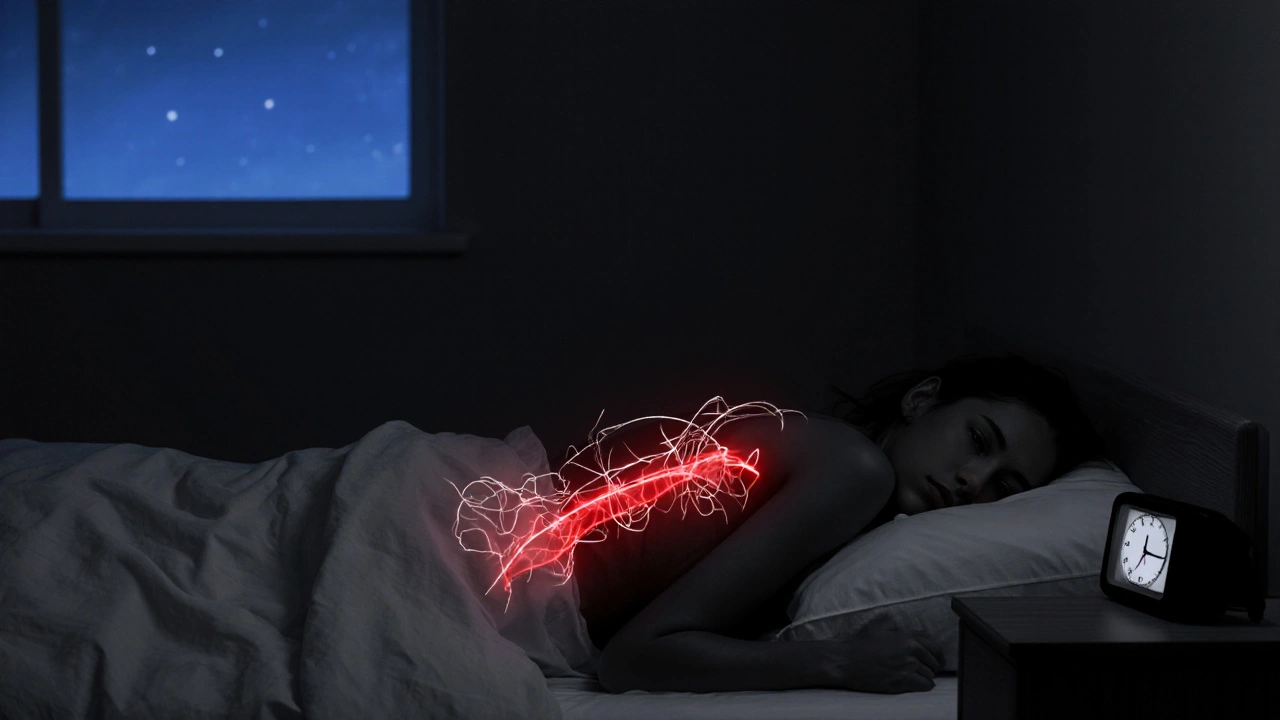Insomnia: Understanding the Nighttime Struggle
When working with insomnia, the persistent difficulty falling asleep or staying asleep despite having the opportunity to rest. Also known as sleep loss, it touches every age group and can bleed into work, mood, and health. Most people think of insomnia as just a bad night, but the reality is a cycle where the brain learns to expect wakefulness, making each night harder than the last. Insomnia isn’t a rare condition – surveys show roughly one in three adults experiences it at least a few times a year. The good news is that understanding the root causes lets you break the loop with simple lifestyle tweaks, targeted therapy, or even adjusting medications that might be keeping you up.
Key factors that fuel insomnia
One of the biggest triggers is stress, the body’s response to perceived pressure or threat, releasing hormones like cortisol that can keep the mind alert. When cortisol spikes at night, the natural wind‑down signal weakens, and you end up tossing and turning. Another common, often overlooked cause is menopause, the natural transition that ends a woman's menstrual cycles, bringing hormonal shifts that can disturb sleep patterns. Hot flashes, night sweats, and mood swings all pile onto the stress pile, creating a perfect storm for restless nights. Finally, depression, a mood disorder marked by persistent sadness, loss of interest, and often altered sleep architecture can flip the sleep script in the opposite direction: some people sleep too much, others not enough. These three entities often overlap – a menopausal woman may feel stressed about changing bodies, while depression can magnify both stress and hormonal discomfort. Recognizing which factor dominates for you helps you target the right remedy, whether it’s cognitive‑behavioral therapy for stress, hormone‑balancing strategies for menopause, or antidepressant adjustments that spare the sleep cycle.
The collection of articles you’ll find below dives deep into the practical side of these connections. You’ll see how medication side effects, such as those from Alzen or Actifen, can masquerade as insomnia, and why a simple sleep‑hygiene checklist (dark room, cool temperature, limited screen time) often fixes what looks like a complex problem. There are guides on tapering off sleep‑disrupting drugs, nutrition tips for hormone balance, and mental‑health tricks to quiet a racing mind. By the time you finish reading, you’ll have a toolbox of evidence‑based steps that fit your unique mix of stress, hormonal changes, or mood issues, giving you a clearer path to restful nights.
How Insomnia Fuels Chronic Pain: Causes & Relief Strategies
- Laura Ledas
- Sep, 21 2025
Explore how insomnia intensifies chronic pain, the biological loop linking them, and practical steps-sleep hygiene, CBT‑I, exercise, and meds-to break the cycle.
Learn More